Zarif says Russia confirmed readiness to honor Iran deal despite US pullout
Iranian Foreign Minister Mohammad Javad Zarif says Russia has confirmed its preparedness to respect the seven-party nuclear agreement reached in 2015 despite the US pullout.
The top Iranian diplomat made the comments at a meeting on Monday with his Russian counterpart, Sergei Lavrov, in Moscow, the second destination on his diplomatic tour aimed at saving the nuclear deal, officially called the Joint Comprehensive Plan of Action (JCPOA).
Russian media further cited Zarif as saying that Tehran and Moscow would do their utmost to keep the Iran deal in place less than a week after US President Donald Trump announced Washington’s withdrawal from the JCPOA despite earlier international warnings and pleas for the White House not to attack yet another international agreement.
Zarif later told a joint news conference with Lavrov that “the final aim of these negotiations is to seek assurances that the interests of the Iranian nation will be safeguarded.”
Trump has said the US would be reinstating the anti-Iran bans lifted under the JCPOA and also slapping the “highest level” of economic sanctions on Tehran, prompting anger among other parties to the Iran deal, which unanimously denounced Washington and vowed to stay committed to their side of the deal.
Reacting to Trump’s decision, Tehran said it would for now stay in the deal, pending talks with Russia, China and the three European signatories before coming up with a decision on the future of the deal.
Top Iranian officials, including Leader of the Islamic Revolution Ayatollah Seyyed Ali Khamenei and President Hassan Rouhani, have said Europeans must give the required guarantees in order for Tehran to stay in the deal.
Zarif further censured the US under Trump for developing the habit of voicing opposition to international deals and regulations.
He said the deal “is based on the balance of obligations” between Tehran and the opposite side, including the US, and that after Washington’s pullout “this balance is undermined,” adding, “We should see how we can secure the interests of the Iranian people.”
Meanwhile, Lavrov said that Russia and Europe had a duty to “jointly defend their legal interests” in terms of the Iran deal.
“Unfortunately once again we see that Washington is trying to revise key international agreements as it happens to Joint Comprehensive Plan of Action, as it happens to Jerusalem (al-Quds) problem and a number of other agreements,” the top Russian diplomat said.
“Today we hope to see how we can use the available mechanisms not to allow the undermining of this important document with the participation of European Troika, China, Russia, Iran and European Union,” he stressed.
Lavrov also voiced support for Iran’s right to defend its “legitimate interests” as part of the agreement, which removed nuclear sanctions against Iran in early 2016 in exchange for certain limits to its civilian nuclear activities.
“I would like to point out that Russia and other participants in the deal - China and the European countries - also have their legitimate interests enshrined in this agreement,” he added. “This is why we need to cooperate in protecting our legitimate interests.”
Zarif arrived in Moscow following similar negotiations in China and will later head to Brussels for talks with the EU foreign policy chief, Federica Mogherini, and his counterparts from the three European parties.
In the aftermath of Washington’s pullout, Europeans are seeking ways to protect the interests of their firms doing business in Iran and help them escape the brunt of the upcoming US sanctions.
Senior EU politicians recently threatened that the 28-nation bloc is ready to challenge any move that may harm their businesses in the Iranian market at the World Trade Organization (WTO).
The White House has already began a fresh push to put pressure on Iran and Washington’s European allies.
In the past week, it has slapped a new series of sanctions against Iran.
On Sunday, US National Security Adviser John Bolton threatened the European allies that Washington is prepared to impose sanctions on European companies if their governments refuse to heed Trump’s demand to stop dealing with Iran.
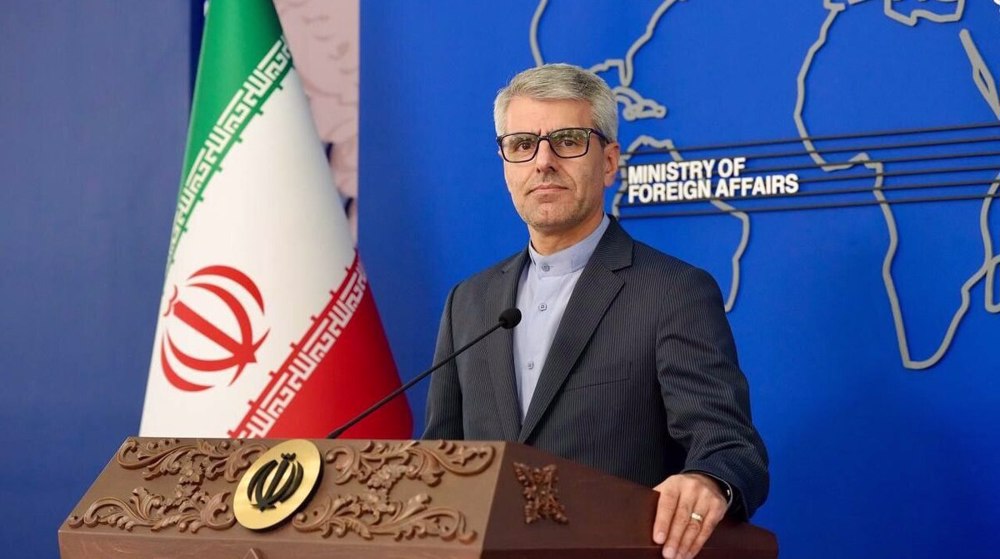
Iran warns ‘moving the goalposts’ could derail Tehran-Washington talks
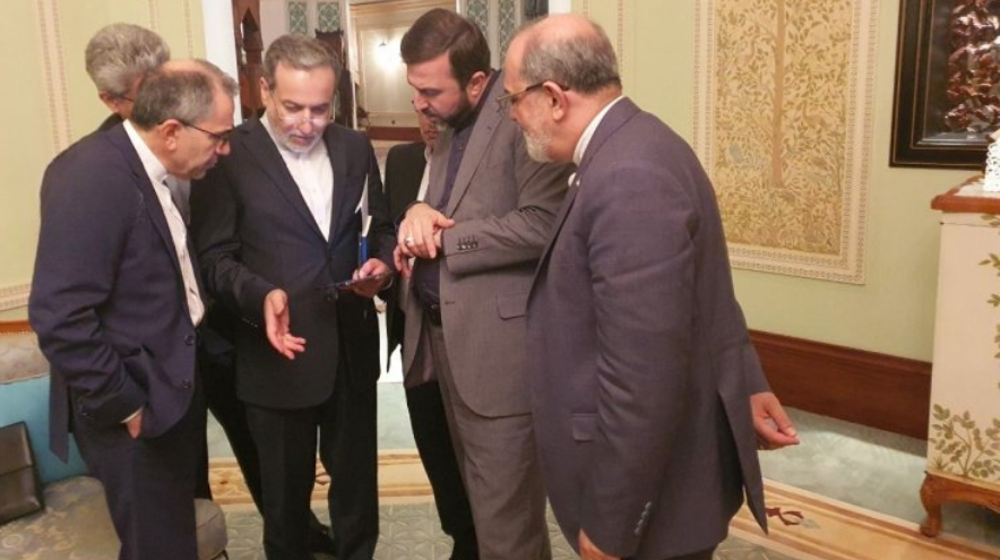
Iran’s enrichment ‘non-negotiable’, talks fruitless under pressure: FM
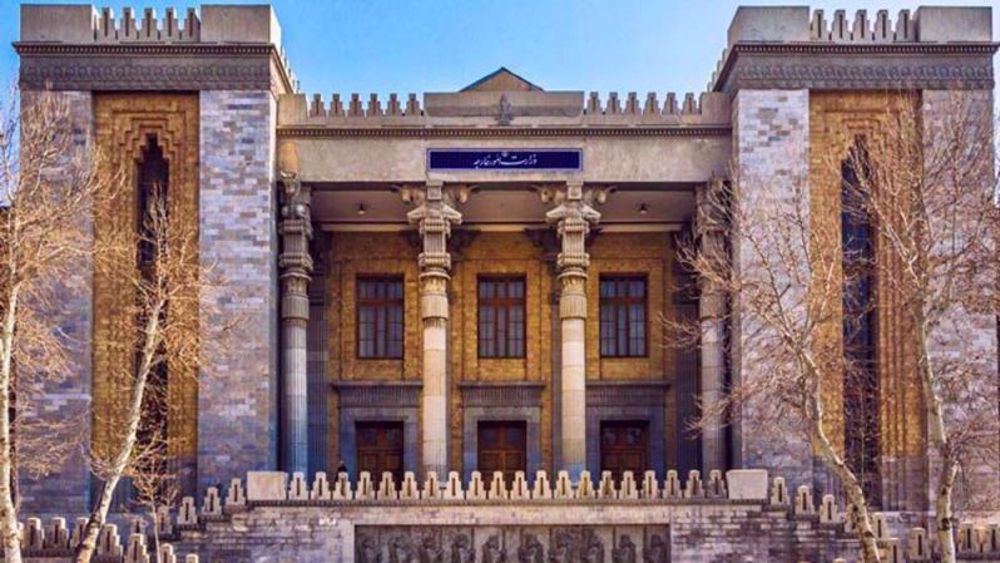
Iran summons Argentine envoy over accusations against top officials
VIDEO | Press TV's news headlines
VIDEO | Paris rally condemns Israel, decries killing of Palestinian journalists
VIDEO | Italy's Meloni visits US to discuss Trump's tariffs as EU unity at risk
VIDEO | Syria under HTS
1 killed as US keeps up deadly escalation against Yemen
ICC sues Hungary for failing to arrest fugitive Israeli war criminal Netanyahu
VIDEO | Western coverage of Israeli war on Gaza
VIDEO | US's broken commitments









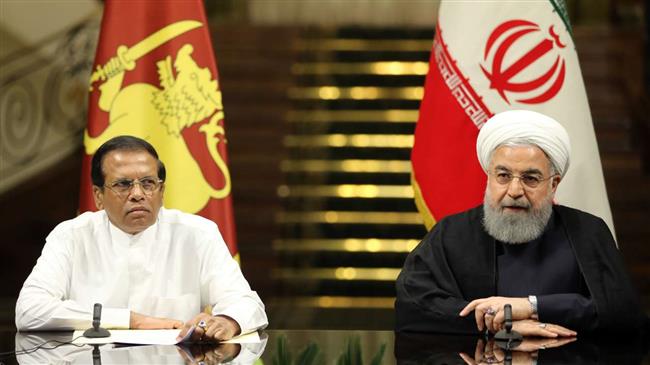


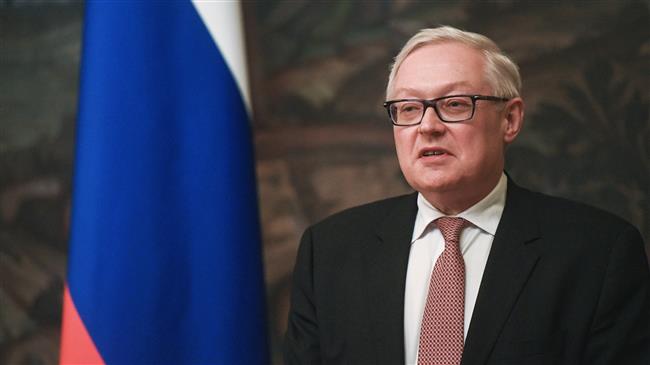

 This makes it easy to access the Press TV website
This makes it easy to access the Press TV website